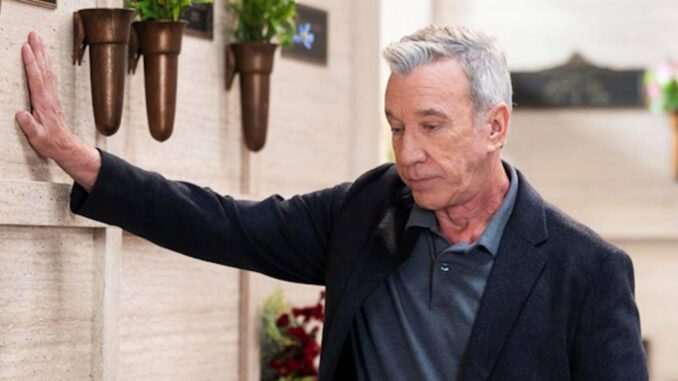
Shifting Gears: How the Tim Allen Plot Twist Derailed the Heart of the Show
Tim Allen, the man synonymous with American dad-humor and automotive tinkering, returned to the sitcom world with "Shifting Gears," a series ostensibly about a family auto shop and the generational gap. While the show initially offered a familiar dose of Allen's charm and the promise of heartwarming family dynamics, a crucial plot twist midway through the season inadvertently shifted gears into a direction that ultimately undermined the true heart of the show: the relationship between Riley and Matt.
The premise of "Shifting Gears" was simple: Matt, Tim Allen's character, struggles to adapt to a changing world and evolving business practices while working alongside his estranged daughter, Riley, who’s taken over the family auto shop. The initial episodes were promising, focusing on the comedic clash of their personalities and the gradual rebuilding of their father-daughter bond. Riley, played with a refreshing mix of confidence and vulnerability, was presented as the pragmatic and modern force guiding the business forward, while Matt, entrenched in tradition, offered the familiar Allen-esque grumbling and old-school mechanical know-how. The tension between them, laced with genuine affection, was the driving force of the show, the engine that kept it running.
However, the introduction of the "twist" – Matt secretly financing Riley's business venture all along – was where "Shifting Gears" veered off course. Initially, the reveal was intended as a touching gesture, showcasing Matt's unwavering belief in his daughter's abilities, even when he outwardly disagreed with her methods. But the execution felt clunky and ultimately problematic, throwing the established power dynamic between them into disarray.
Prior to the twist, Riley's character was defined by her independence and determination. She was working to prove herself, both to her father and to the world, carving her own path in a male-dominated industry. The revelation that Matt was her silent benefactor robbed her of agency and undermined the audience's perception of her accomplishments. Suddenly, her success felt less earned and more like a product of her father's hidden support.
More importantly, the twist fundamentally altered the relationship between Riley and Matt, the supposed core of the series. Their disagreements, once a source of relatable conflict and comedic fodder, now felt contrived and insincere. Knowing that Matt was secretly backing her made his resistance to Riley's ideas seem disingenuous, a charade played for the sake of maintaining the comedic tension. The dynamic shifted from a genuine clash of perspectives to a manufactured conflict, diminishing the emotional weight of their interactions.
The audience, initially invested in Riley's struggle to navigate the challenges of running a business and proving herself to her father, were left with a sense of betrayal. The organic, believable development of their relationship was sacrificed on the altar of a plot device that ultimately diminished Riley's character and weakened the emotional core of the show.
The irony is that "Shifting Gears" had the potential to be more than just another Tim Allen vehicle. It had the opportunity to explore the complexities of generational differences, the evolving roles of women in the workplace, and the enduring power of family bonds. Instead, the poorly executed twist prioritized a fleeting moment of emotional manipulation over the long-term integrity of the characters and the narrative.
Ultimately, the Tim Allen plot twist in "Shifting Gears" serves as a cautionary tale. It highlights the dangers of prioritizing shock value over character development and the importance of maintaining the integrity of the central relationships that form the foundation of a successful show. While the series may have been intended to celebrate the power of family and the enduring appeal of classic Americana, the ill-conceived twist ultimately derailed its trajectory, leaving the true main couple, Riley and Matt, stranded by the roadside, their relationship sputtering and ultimately running out of gas. Just like a finely tuned engine, a good plot twist needs to be carefully crafted and expertly deployed; otherwise, it can backfire, leaving the audience feeling cheated and the narrative irrevocably damaged.